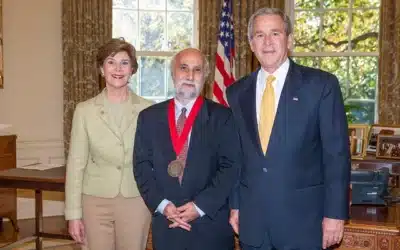The Federal Trade Commission (FTC) recently filed its long-anticipated lawsuit against Amazon. The FTC alleges that Amazon is using their market power to bully smaller vendors that use its platform by requiring them to pay exorbitant fees to use Amazon’s shipping service—and agree to not sell their products on other platforms (including their own) at a cheaper price than the products are sold for on Amazon. However, the requirement that companies use Amazon’s shipping services was imposed in order to ensure that third party vendors could meet Amazon delivery standards. In fact, the company has said third party sellers can use other delivery options as long as Amazon is satisfied those shippers can meet Amazon’s delivery standards. The requirement that companies not sell products for a cheaper price on another platform makes sense; after all, it is a part of Amazon’s business model focused on attracting consumers with low prices.
The FTC says consumers are harmed by Amazon’s practice of favoring companies that pay for ads in search results. The FTC claims that Amazon is manipulating its algorithm to list products of companies that bought advertising—or Amazon’s own products—at the top of search results instead of the products consumers were searching for. The FTC apparently thinks consumers are too stupid and/or lazy to scroll through a page or more of search results to find the product that best suits their needs.
The FTC does not single out any individual action by Amazon as violating a specific antitrust law. Rather, the agency claims that Amazon is engaging in a pattern of anticompetitive and unfair conduct. These vague charges suggest that any business can be hauled into court, not because they violated a specific action, but because the business has become “too big to succeed.”
Of all the economic fallacies committed by the FTC, perhaps the most egregious is the claim that Amazon charges third party vendors “exorbitant” fees. Government bureaucrats cannot know the correct price for any good and service. This is why government price controls result in shortages. The only way to know the fair price is to allow prices to be set via the interactions of buyers and sellers in a free market.
It is also debatable whether Amazon qualifies as a monopoly under any reasonable definition of the term. Amazon only accounts for 8% of online retail sales and 6% of total retail sales. Consumers can find numerous alternatives to Amazon, including websites of the biggest brick and mortar retailers like Wal-Mart and Target. Consumers choose Amazon because it does a better job than its competitors of offering what people want from an online retailer: low prices, wide selection, and guaranteed quick delivery.
Many antitrust experts are predicting the FTC’s lawsuit will be yet another defeat for FTC Chair Lina Khan and her allies. Even if this is true, it will not stop Khan from filing future suits against Amazon and other big tech companies. One reason is they hope that the agency will eventually win a case that will set a precedent for future victories. Or the big companies will start seeking to cut deals with the government so they don’t need to on waste time and money defending themselves in court.
This could be a backdoor way of achieving one of the left’s (and some of the right’s) goals: to treat “Big Tech” companies like government-regulated utilities. Of course, the companies would remain private, but they would have to seek the government’s permission before undertaking any major new initiative. This would please the small businesses that complain about Amazon’s terms for using their platform (while they continue to profit from using it), since they want government to rewrite their contract with Amazon on terms more favorable to them.
A series of consent decrees or company settlements would let the FTC treat the Big Tech companies like public utilities without Congress having to pass what would be controversial legislation nationalizing Big Tech. Congress needs to engage in oversight of the FTC and make sure that no settlement or consent decree between the FTC and tech companies turns Lina Khan into the CEO of Big Tech.
































